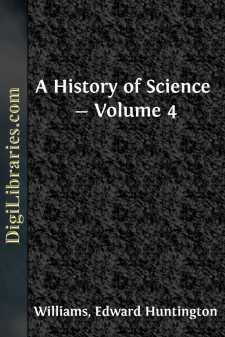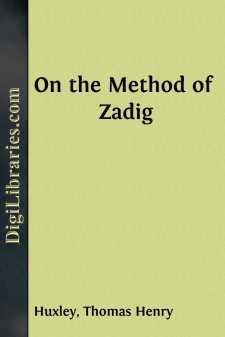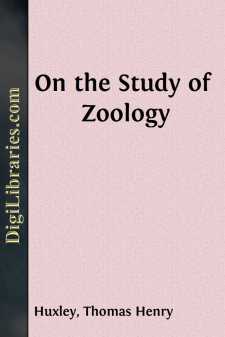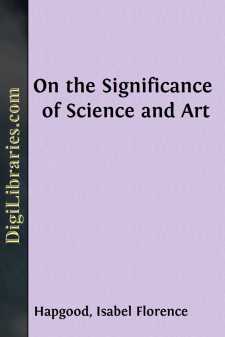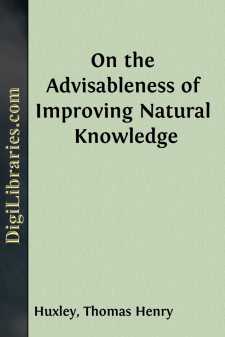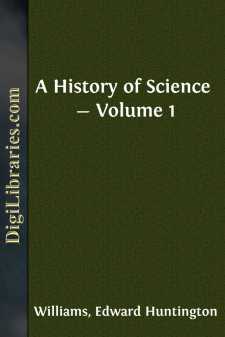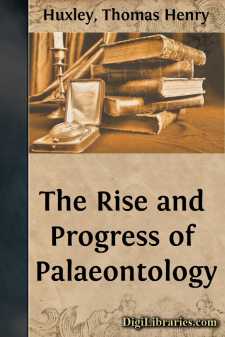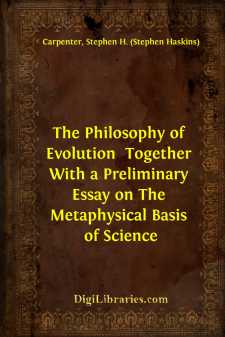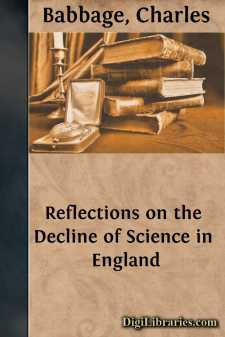Science
- Astronomy 18
- Biology 40
- Chemistry 13
- Electricity 1
- General 38
- History 6
- Light 1
- Paleontology 2
- Philosophy & Social Aspects 1
- Physics 3
- Relativity 2
- Study & Teaching 1
- Waves & Wave Mechanics 1
Science Books
Sort by:
I. THE PHLOGISTON THEORY IN CHEMISTRY The development of the science of chemistry from the "science" of alchemy is a striking example of the complete revolution in the attitude of observers in the field of science. As has been pointed out in a preceding chapter, the alchemist, having a preconceived idea of how things should be, made all his experiments to prove his preconceived theory; while...
more...
It is an usual and a commendable practice to preface the discussion of the views of a philosophic thinker by some account of the man and of the circumstances which shaped his life and coloured his way of looking at things; but, though Zadig is cited in one of the most important chapters of Cuvier's greatest work, little is known about him, and that little might perhaps be better authenticated than...
more...
NATURAL HISTORY is the name familiarly applied to the study of the properties of such natural bodies as minerals, plants, and animals; the sciences which embody the knowledge man has acquired upon these subjects are commonly termed Natural Sciences, in contradistinction to other so-called "physical" sciences; and those who devote themselves especially to the pursuit of such sciences have been...
more...
CHAPTER I. . . . The justification of all persons who have freed themselves from toil is now founded on experimental, positive science. The scientific theory is as follows:— “For the study of the laws of life of human societies, there exists but one indubitable method,—the positive, experimental, critical method “Only sociology, founded on biology, founded on all the positive sciences, can...
more...
In controversy, as in courtship, the good old rule to be off with the old before one is on with the new, greatly commends itself to my sense of expediency. And, therefore, it appears to me desirable that I should preface such observations as I may have to offer upon the cloud of arguments (the relevancy of which to the issue which I had ventured to raise is not always obvious) put forth by Mr....
more...
This time two hundred years ago—in the beginning of January, 1666—those of our forefathers who inhabited this great and ancient city, took breath between the shocks of two fearful calamities: one not quite past, although its fury had abated; the other to come. Within a few yards of the very spot on which we are assembled, so the tradition runs, that painful and deadly malady, the plague, appeared...
more...
I. PREHISTORIC SCIENCE To speak of a prehistoric science may seem like a contradiction of terms. The word prehistoric seems to imply barbarism, while science, clearly enough, seems the outgrowth of civilization; but rightly considered, there is no contradiction. For, on the one hand, man had ceased to be a barbarian long before the beginning of what we call the historical period; and, on the other...
more...
That application of the sciences of biology and geology, which is commonly known as palaeontology, took its origin in the mind of the first person who, finding something like a shell, or a bone, naturally imbedded in gravel or rock, indulged in speculations upon the nature of this thing which he had dug out—this "fossil"—and upon the causes which had brought it into such a position. In this...
more...
All knowledge is essentially one. The object-matter upon which intellect exerts itself, does not affect the subjective act of knowing. Physics, when stripped of that which is merely contingent, becomes metaphysics. Physical science deals with object-matter, and discusses the signs by which nature communicates her message—that is, phenomena. Metaphysical science has to do with the subject-mind, and...
more...
by:
Charles Babbage
CHAPTER I. ON THE RECIPROCAL INFLUENCE OF SCIENCE AND EDUCATION. That the state of knowledge in any country will exert a directive influence on the general system of instruction adopted in it, is a principle too obvious to require investigation. And it is equally certain that the tastes and pursuits of our manhood will bear on them the traces of the earlier impressions of our education. It is therefore...
more...


